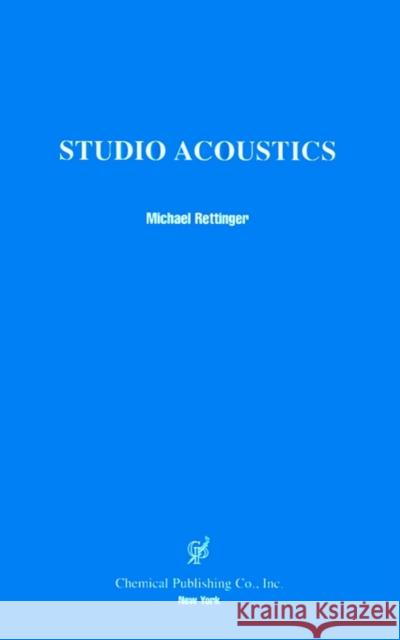Studio Acoustics » książka
Studio Acoustics
ISBN-13: 9780820603766 / Angielski / Miękka / 1981 / 248 str.
Foreword- PART I. BASICS - 1. Introduction 2. Studio Planning 3. Sound Insulation 4. Reverberation 5. Air-Conditioning System Noise Limits 6. Sound-Retardant Windows and Doors 7. Instrument Isolation for Multiple Track Recording 8. Studio Testing 9. Plumbing Noise Control 10. Vibration Isolation 11. Suspended Acoustic Ceiling 12. Elevators 13. Interior Decor of Studios 14. Sound Power Versus Sound Pressure PART II. STUDIOS - 15. Control Rooms 16. ADR Studios 17. Re-Recording Studios 18. Reverberation Chambers 19. Motion Picture and TV Stages 20. Music Recording Studios 21. Review Rooms 22. Future Sound-Recording Studios 23. Canopied Amphitheaters PART III. ELECTROACOUSTICS - 24. Microphone Properties 25. Loudspeaker Sensitivity 26. Electronic Light Dimmers - Index Sound recording studios are often built like showcases, either to attract clientele or to provide a distinctive image for the industry. They are, thus, like people, in that no two of them are alike. Yet, all such structures have to have certain common acoustic elements if they are to function to the best artistic and economic advantages. The enclosures must be sufficiently quiet, exhibit proper reverberatory conditions (often required to be adjustable), be devoid of parallelisms between hard surfaces, have no sound-focusing concave surfaces, be free of vibrations from external and internal sources, etc. It is for the purpose of providing first design principles of sound recording studios that this book has been prepared, so that for any given size structure, satisfactory vocal and instrumental recording conditions can be established therein. All equations involving physical quantities are given both in the English and the MKS system of measurement. Also, when the description of existing studios includes linear dimensions, their metric equivalents follow in parenthesis, as is also done for such quantities as surface density (mass per unit area) and sound absorption.











